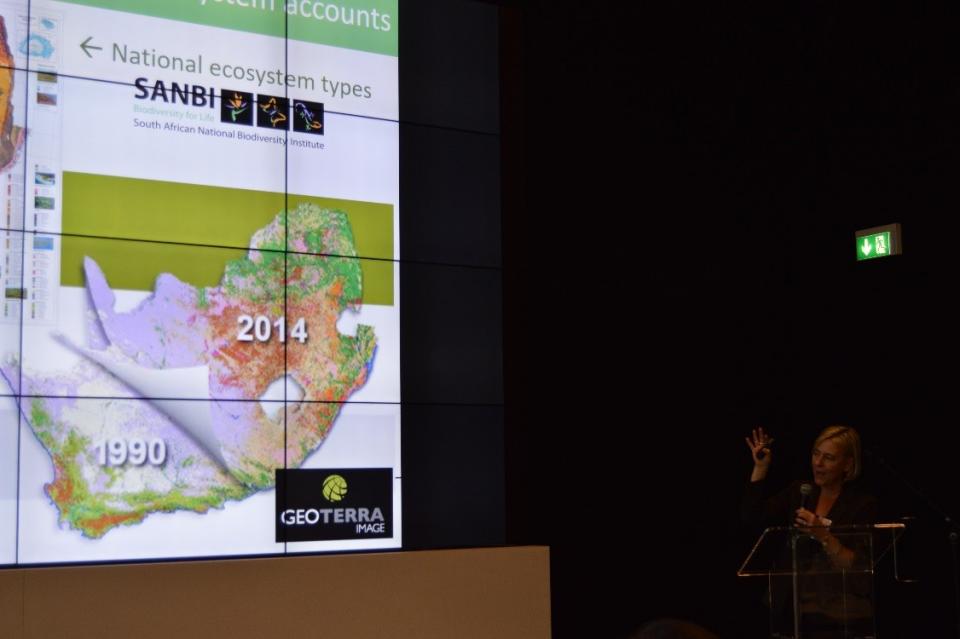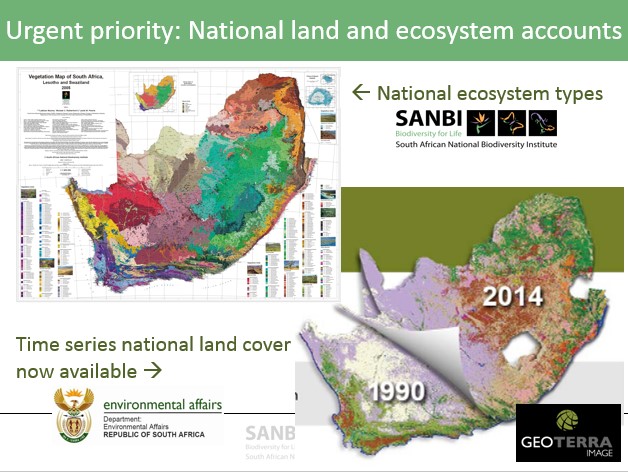Exploring Policy Applications of Ecosystem Accounting in South Africa

The 2nd Natural Capital Accounting for Better Policy Forum showcases South African progress with piloting ecosystem accounting as part of the Natural Capital Accounting and Valuation of Ecosystem Services project.
The second Policy Forum, organized by the World Bank in collaboration with the Dutch Ministry of Foreign Affairs and UNSD, brought together a broad range of policymakers, environmental economists, natural resource practitioners, researchers and national accountants in The Hague, 22-23 November. The year’s Forum was placed in the context of the SDGs. Session 5, organized by Bram Edens of UNSD and Rocky Harris of DEFRA focused on the potential of ecosystem accounting following the System of Environmental-Economic Accounting (SEEA) Experimental Ecosystem Accounting for informing SDG 15, Life on Land.
During the special session on SDG 15, insightful case studies were presented to illustrate the status of the development of ecosystem accounting and its policy applications in countries. For example, Australia has developed an integrated set of timber, water and biodiversity accounts for tradeoff analysis to inform forest management decisions. In Uganda, the recently developed biodiversity accounts provide information towards biodiversity conservation goals on the protection of endangered species such as chimpanzee. The UK presented its experience using natural capital accounting to improve sustainable forest management.
Mandy Driver, senior biodiversity policy advisor at the South African National Biodiversity Institute (SANBI) presented four promising policy applications for ecosystem accounts in South Africa.
- Spatial planning: Ecosystem accounting provides measures of key changes taking place in the landscape, which enables understanding of synergies and trade-off for land use for strategic development planning at the national and municipal level. Such information may feed into the National Spatial Development Framework in support of the National Development Plan and municipal land use planning.
- Water security: Strategic water source areas serve as vital ecological infrastructure that provides approximately 70% of irrigation water and support 51% of the South Africa’s population and 64% of its economy. Information from ecosystem accounting can provide a comprehensive assessment to inform better management of these vital assets.
- Investment in ecosystem restoration: Information from ecosystem accounting can support cost- benefit analysis to evaluate the environmental public work programmes on ecosystem restoration, to prioritize ecosystems for intervention and to assess the rate of return on investments of such interventions.
- Protected area expansion: Information from ecosystem accounting can be used to assess the protection level of ecosystems, which feeds into the National Protected Areas Expansion Strategy (NPAES) to direct protected area expansion.

Statistics South Africa and SANBI will continue further testing of the SEEA EEA from 2017 onwards with an objective to integrate biodiversity and ecosystem services into planning and development, as part of the EU-funded project Natural Capital Accounting & Valuation of Ecosystem Services project.
As a next step, South Africa will be convening a national stakeholder meeting in March 2018 to discuss the initial programme of work for 2018-19, detailing the compilation of a set of ecosystem accounts in physical and monetary terms.
